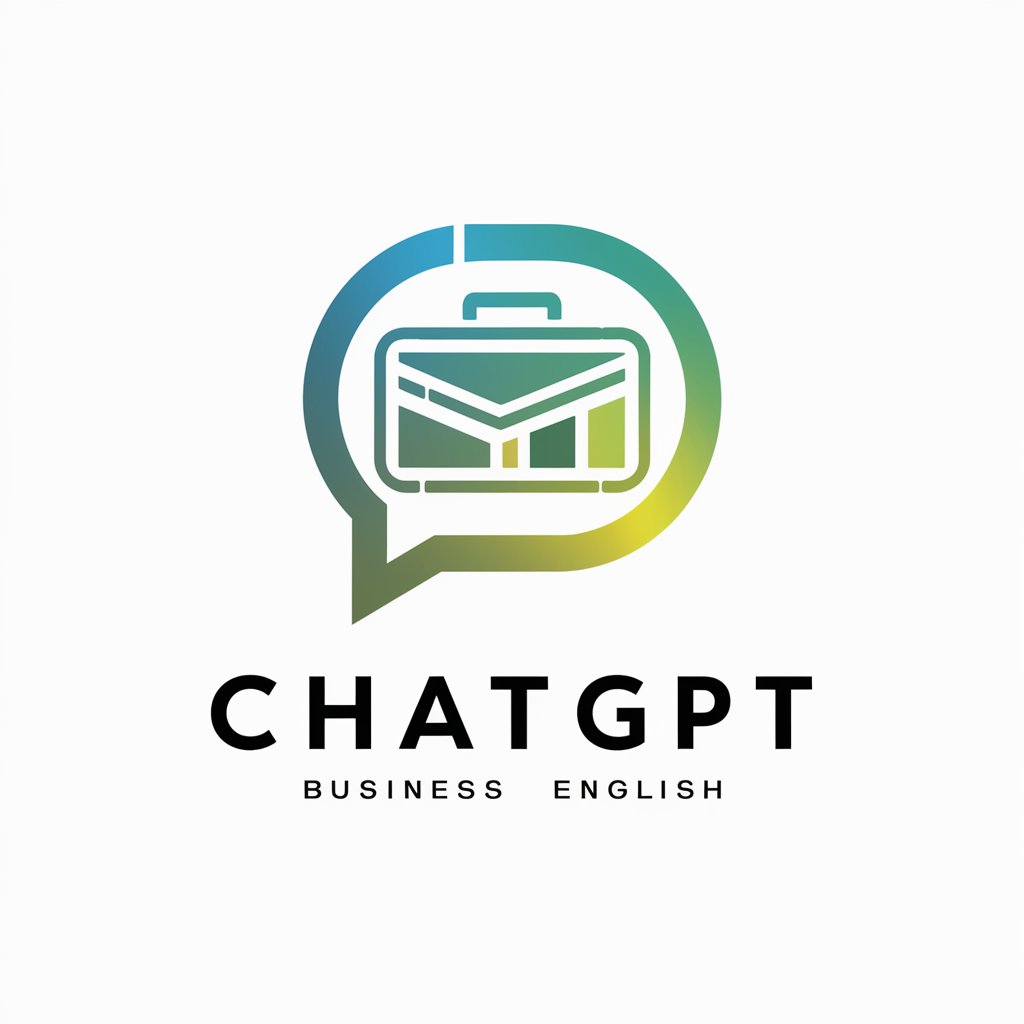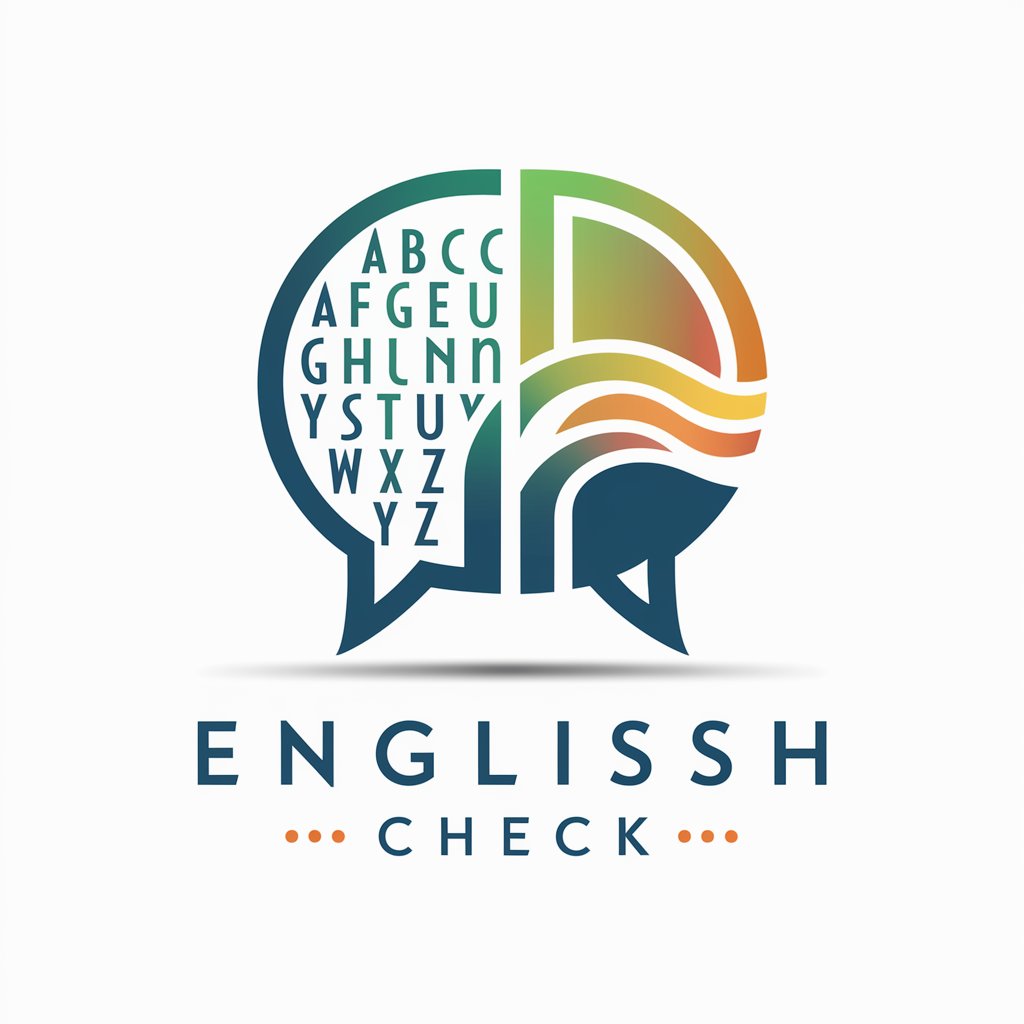
Business English refinement for Spanish speakers - AI-powered Business English tool.

Translates and refines to casual business English
AI-powered Business English refinement for Spanish speakers.
Translate this business phrase:
Refine this text to conversational American English:
Explain this business abbreviation:
How would you say this in a business setting?
Make this sentence sound more casual in English:
Get Embed Code
Introduction to Business English Refinement for Spanish Speakers
Business English Refinement for Spanish Speakers is a tool designed to help native Spanish speakers refine and improve their English communication for professional contexts. The main objective is to provide accurate, culturally relevant translations from Spanish to English, with a specific focus on informal but professional American business communication. This service adapts business phrases into natural, conversational American English while maintaining a professional tone, ideal for environments like emails, Slack messages, or everyday workplace conversations. Additionally, the service explains idioms, two-word verbs, and common business phrases used in English, helping users understand not just what to say, but how to say it in a way that resonates with English-speaking colleagues. For example, if a Spanish speaker says: 'Estoy esperando la confirmación de la reunión,' the refined translation might be: 'I'm just waiting on the meeting confirmation.' This translation sounds natural and uses the two-word verb 'waiting on' instead of a more formal or direct translation like 'waiting for.' This level of refinement helps Spanish speakers avoid overly formal expressions and adjust to the more relaxed, yet professional tone often used in American business settings. Powered by ChatGPT-4o。

Main Functions of Business English Refinement for Spanish Speakers
Translation and Adaptation
Example
Original Spanish: 'Voy a preparar un informe para el lunes.' Translation: 'I'll put together a report for Monday.' This translation uses the casual phrasal verb 'put together' instead of a more formal verb like 'prepare,' which sounds more natural in everyday business English.
Scenario
A Spanish-speaking professional needs to draft an email in English for their colleagues about an upcoming deadline. The service provides a refined translation that sounds professional yet conversational, helping them communicate naturally with their team.
Explanation of Idioms and Phrasal Verbs
Example
Idiomatic Expression: 'Get the ball rolling' (Pronunciation: /gɛt ðə bɔl ˈroʊ.lɪŋ/). Translation: 'Empezar' or 'iniciar.' Definition: To start a process or action. Example: 'Let's get the ball rolling on the project.'
Scenario
A Spanish speaker encounters an idiom in an email like 'get the ball rolling' and doesn’t fully understand its meaning. The service provides a detailed breakdown, pronunciation, and example usage to clarify the phrase.
Refinement of Informal but Professional Messages
Example
Original: 'Can you send me that file when you have a chance?' Refined: 'Can you shoot me that file when you get a sec?' The refined version is a more casual, yet professional way of requesting a file in American business English.
Scenario
A Spanish speaker is drafting a Slack message to a coworker. They want it to sound natural in English but maintain professionalism. The service offers a more conversational option, helping the user sound more fluent in informal business settings.
Clarification of Cultural Nuances in Business Communication
Example
In Spanish, 'Te aviso más tarde' can translate as 'I'll let you know later.' However, this could sound too vague in English. A more culturally appropriate version would be: 'I'll keep you posted.'
Scenario
A user wants to send a follow-up email to an English-speaking colleague. The direct translation from Spanish could be unclear or too formal, so the service suggests a more fitting phrase like 'I'll keep you posted' to maintain clarity and the expected conversational tone.
Providing Business-Appropriate Vocabulary
Example
Spanish: 'Reunión de seguimiento.' Translation: 'Follow-up meeting.' This translation uses a common business term that is immediately understood in English-speaking professional settings.
Scenario
A Spanish speaker is scheduling a meeting in English and wants to use the correct terminology that fits the business environment. The service helps them find precise, context-appropriate words.
Ideal Users of Business English Refinement for Spanish Speakers
Spanish-speaking Professionals Working in English-speaking Environments
These professionals often need to communicate with English-speaking colleagues, clients, or partners. They would benefit from using this service to ensure their English communications are polished, culturally appropriate, and suited to the informal, yet professional style common in American business. This group would particularly appreciate the service's ability to simplify translations and offer more natural-sounding expressions.
Non-native English Speakers Preparing for Job Interviews or Business Presentations
Individuals who are preparing for interviews, presentations, or business meetings in English might need help refining their speech to sound natural and professional. This group would benefit from services that explain idiomatic expressions and provide them with more fluent, conversational ways of communicating their thoughts.
Bilingual Spanish-English Professionals Looking to Improve Fluency
Bilingual professionals who are fluent in both Spanish and English but want to further refine their communication for specific business contexts could use this service to enhance their conversational tone. They would gain a deeper understanding of American business culture, including idioms, two-word verbs, and casual professional expressions, which are often overlooked in traditional language learning.
Spanish-speaking Entrepreneurs Expanding to English-speaking Markets
Entrepreneurs who are expanding their businesses into English-speaking markets will need to communicate effectively in English, both with clients and within their teams. This group would find value in the service’s ability to offer precise, polished, and culturally relevant translations that allow them to engage with their target market more naturally.

How to Use Business English Refinement for Spanish Speakers
1
Visit yeschat.ai for a free trial without login; no need for ChatGPT Plus.
2
Familiarize yourself with the interface. Begin by inputting a sentence in Spanish or English for translation or refinement.
3
Customize the tone. Choose between formal, informal, or neutral tones based on your business needs.
4
Review the output and refine the translation, ensuring it matches the desired business tone and context.
5
Use the tool consistently to practice refining emails, presentations, and Slack messages for ongoing improvement.
Try other advanced and practical GPTs
デザイナー専属のラインアートエージェント
AI-powered line art tailored to your vision

talking with Kate丨practice writing&speaking skills
Master English with AI-Powered Practice

Speaking with professor Emma - Your Private Tutor
AI-powered language learning and correction.

Speak AI: English Conversation Practice&Writing
AI-powered tool for mastering English

日本語LINEスタンプメーカー
Create custom LINE stickers with AI.

Football GPT
AI-powered football insights at your fingertips

Full Exam Management GPT (FEMGPT)
AI-powered tool for exam creation and analysis.

Vocabulary Builder Wizard
Master vocabulary with AI-powered etymology
ロMidjourneyロ Describe Wizard
AI-driven creative prompt generation for Midjourney

Image Vectorizer Wizard
AI-powered image vectorization made easy.

Family Law Australian Guide
AI-powered family law information tool.

学习概念
Simplify your learning with AI guidance

Common Questions About Business English Refinement for Spanish Speakers
What is Business English refinement for Spanish speakers?
It is a tool designed to help Spanish speakers improve their English communication, particularly for business settings. It offers translations and refinements that make conversations sound natural, informal, yet professional.
Can I use it for formal business writing?
Yes. While the tool emphasizes a more casual, conversational tone, it can also adapt to formal business writing by choosing a more neutral or formal setting.
What are some typical use cases?
Common use cases include refining emails, preparing business presentations, improving informal Slack or Teams messages, and translating Spanish phrases into natural-sounding business English.
Do I need to know a lot of English to use this tool?
No, you don’t need advanced English knowledge. The tool is designed to help learners and professionals alike, offering translations and suggestions that are easy to understand and apply.
How is this different from regular translation tools?
Unlike standard translation tools, this AI focuses on the nuances of informal but professional business English, offering culturally relevant and context-appropriate translations rather than literal translations.






